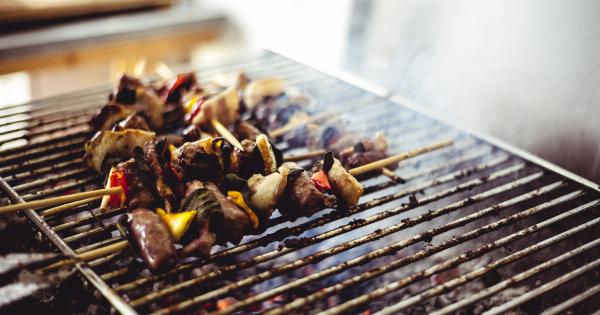Indigestion is a disruptive and uncomfortable condition that can occur after eating certain foods or overeating. It is often characterized by symptoms such as bloating, abdominal pain, gas, and heartburn.
While there are various remedies and medications available to alleviate indigestion, one effective approach is to avoid certain foods that can exacerbate the symptoms. In this article, we will explore ten different types of foods that you should avoid when you have indigestion, along with some alternatives and tips to help you manage this condition.
1. Spicy Foods
Spicy foods are known to be a common trigger for indigestion. The capsaicin compound found in hot peppers and spices can irritate the stomach lining and worsen the symptoms of indigestion.
If you are prone to indigestion, it is best to avoid or limit the consumption of spicy foods like chili peppers, hot sauce, and dishes with excessive amounts of spicy seasonings.
2. Fatty and Greasy Foods
Fatty and greasy foods can delay stomach emptying, leading to a longer digestion process. This can result in increased pressure on the stomach and aggravate indigestion symptoms.
Avoid foods high in saturated and trans fats, such as fried foods, fatty cuts of meat, processed snacks, and creamy desserts.
3. Citrus Fruits and Juices
Citrus fruits, including oranges, lemons, grapefruits, and their juices, contain high levels of acidic compounds. These acids can irritate the esophagus and worsen heartburn symptoms associated with indigestion.
If you have indigestion, it is advisable to avoid consuming large amounts of citrus fruits or opting for milder options like bananas, melons, or apples instead.
4. Carbonated Beverages
Carbonated beverages, such as soda and sparkling water, can introduce excess air into the stomach, leading to bloating, belching, and discomfort.
Additionally, these drinks often contain high levels of sugar, artificial sweeteners, or caffeine, which can contribute to indigestion. It is recommended to choose non-carbonated and caffeine-free alternatives like herbal teas or infused water.
5. Onions and Garlic
Onions and garlic are notorious for causing indigestion, especially in people who are prone to acid reflux.
They contain fermentable fibers and sulfur compounds that can increase gastric acid production and relax the lower esophageal sphincter (LES), allowing stomach acid to flow back into the esophagus. Consider using herbs and spices like oregano, basil, or ginger to enhance the flavor of your dishes without triggering indigestion.
6. Chocolate
While chocolate is often considered a guilty pleasure, it is also a potential trigger for indigestion. Chocolate contains both caffeine and theobromine, which can increase acid production and relax the LES, leading to acid reflux and discomfort.
If you are experiencing indigestion, it is advisable to choose healthier alternatives like dark chocolate with a higher cocoa content, or opt for fruits as a sweet treat.
7. Peppermint
Peppermint, including peppermint tea or candies, may provide relief for some digestive conditions. However, for individuals with indigestion, peppermint can relax the LES and worsen heartburn symptoms.
If you are experiencing indigestion, it is best to avoid peppermint-flavored products and explore other herbal teas that can help soothe the digestive system, such as chamomile or ginger tea.
8. Alcohol
Alcohol is known to irritate the stomach lining and increase stomach acid production, which can lead to indigestion and acid reflux. Moreover, it can also contribute to dehydration, which can further exacerbate digestive issues.
If you have indigestion, it is recommended to avoid or limit alcohol consumption and opt for non-alcoholic alternatives like infused water or herbal mocktails.
9. Coffee
Caffeine, present in coffee and many other beverages, can stimulate gastric acid secretion and relax the LES, leading to indigestion symptoms. Drinking large amounts of coffee or consuming it on an empty stomach can worsen these effects.
If you love the flavor of coffee, consider opting for decaffeinated versions or gradually reducing your caffeine intake to relieve indigestion.
10. High-Fiber Foods
While fiber is generally beneficial for digestion, consuming excessive amounts of high-fiber foods can result in indigestion, especially if your body is not accustomed to it.
Foods like whole grains, legumes, and cruciferous vegetables can produce gas in the digestive tract, leading to bloating and discomfort. Incorporate fiber-rich foods gradually into your diet to allow your body to adjust, and consider cooking vegetables to improve digestibility.
By avoiding or reducing the consumption of these ten types of foods when you have indigestion, you can significantly improve your symptoms and overall digestive comfort.
It is also essential to pay attention to your personal triggers and adjust your diet accordingly. Additionally, maintaining a balanced diet, eating smaller portions, staying hydrated, and engaging in regular physical activity can further support healthy digestion and prevent indigestion.































